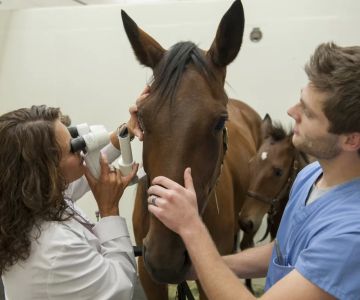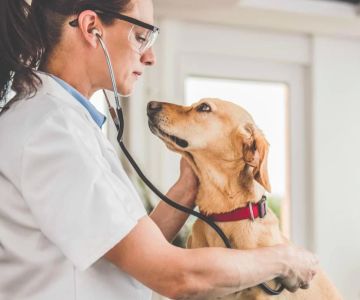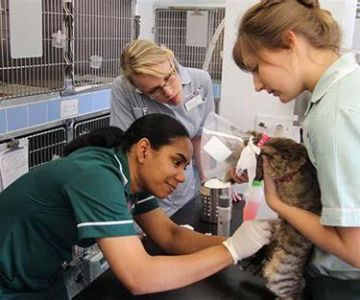- 1-understanding-the-veterinary-career-path
- 2-pre-veterinary-degree-options
- 3-essential-prerequisites-for-veterinary-school
- 4-veterinary-school-admissions-and-experience
- 5-specializations-and-career-opportunities-in-veterinary-medicine
- 6-real-stories-from-veterinary-students
- 7-tips-for-successful-veterinary-education
1. Understanding the Veterinary Career Path
If you're wondering what degree should I get to become a veterinarian, it’s important to understand that becoming a vet requires a dedicated educational journey. Most veterinarians earn a Doctor of Veterinary Medicine (DVM) degree after completing an undergraduate degree. The path typically involves several years of pre-veterinary coursework, followed by rigorous veterinary school training.
The veterinary career path combines animal science, medicine, and surgery, preparing students to diagnose and treat animals across a variety of species.
2. Pre-Veterinary Degree Options
Choosing the right undergraduate degree can influence your preparedness for veterinary school. Common pre-veterinary degrees include Animal Science, Biology, Microbiology, and Biochemistry. These programs cover essential subjects like anatomy, physiology, genetics, and chemistry, which form the foundation for veterinary studies.
While there is no single “best” degree to become a veterinarian, selecting a science-heavy program that meets veterinary school prerequisites is crucial.
3. Essential Prerequisites for Veterinary School
Veterinary schools typically require coursework in biology, chemistry (general and organic), physics, math, and English. Gaining hands-on experience through internships, volunteering, or working in animal clinics is also highly recommended to strengthen your application and understanding of the field.
Admissions committees look for candidates with strong academic records, animal experience, and a demonstrated commitment to veterinary medicine.
4. Veterinary School Admissions and Experience
Getting into veterinary school is competitive. Applicants must prepare for the Veterinary College Admission Test (VCAT) or the GRE, depending on the school’s requirements. Interviews and recommendation letters also play significant roles in the admissions process.
Once admitted, students undergo intense training in clinical skills, diagnostics, surgery, and animal care, often including rotations at veterinary hospitals and research facilities.
5. Specializations and Career Opportunities in Veterinary Medicine
After earning a DVM, veterinarians can pursue specialties such as surgery, dentistry, dermatology, internal medicine, or exotic animal care. Each specialty offers unique challenges and opportunities to make a difference in animal health.
Understanding these options early can help guide your educational focus and career planning.
6. Real Stories from Veterinary Students
Jessica, a recent veterinary graduate, shares, “Choosing a degree in Animal Science gave me a strong foundation that made veterinary school more manageable. Volunteering at clinics early on confirmed my passion and gave me the practical skills I needed.”
Such stories illustrate the importance of thoughtful degree choice and gaining real-world experience before vet school.
7. Tips for Successful Veterinary Education
To succeed in your goal of becoming a veterinarian, focus on maintaining a strong GPA, gaining diverse animal experience, and building relationships with mentors. Utilize resources such as preparatory courses, veterinary associations, and educational platforms.
If you’re looking for tools or study aids to help with your veterinary education journey, exploring reputable educational resources and supplies can provide essential support as you progress toward your career.











